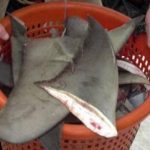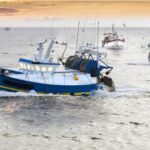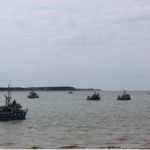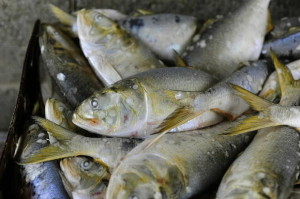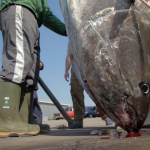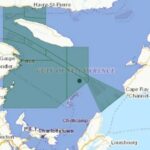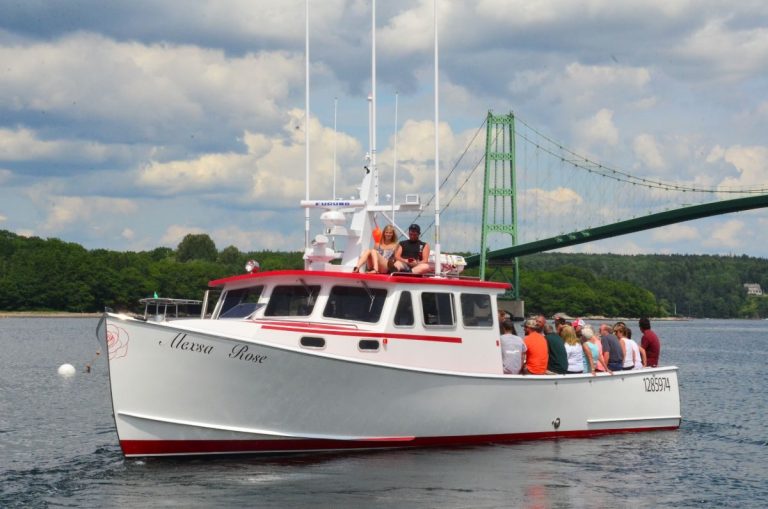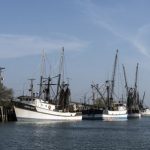Tag Archives: Gulf of Maine

Lobster harvesters worry about survival of their livelihoods
The state’s lobster industry is bracing as federal regulators consider additional requirements they claim are needed to protect the endangered North American right whale, proposals many fear could spell doom for the industry and the coastal communities that it supports. Squaring off in this battle are national environmental and animal rights organizations versus Maine and its lobster harvesters. The legal war began in January 2018 when the Center for Biological Diversity, the Defenders of Wildlife, the Humane Society of the United States, and the Conservation Law Foundation filed a lawsuit in the U.S. District Court of D.C. against the U.S. Department of Commerce and the NOAA. The environmental and animal rights groups claimed the federal agencies had not done enough to protect the North Atlantic right whale from lobster harvesting. >click to read< 12:42
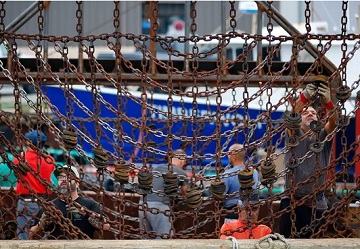
Atlantic sea scallops at lowest biomass in over 20 years and what that means for New Bedford
A Scallop Survey Report presented at the NEFMC meeting Tuesday showed the Atlantic Sea scallop fishery is facing its lowest biomass in over 20 years. Throughout the NEFMC jurisdiction, the survey estimated a biomass decrease of almost 30%. The Georges Bank region saw the largest drop, around 36%. Tyler Miranda, a scalloper Captain and owner who came to prominence during the recent scallop license allocation debate, said that though it is of concern, the announcement does not worry him too much. “Obviously I worry, but what I’ve come to realize about the scallop industry is it fluctuates year to year,” Justin Mello said he felt similarly. “I’m only gonna go into the areas they allow us to, that’s why they call it fishing and not catching.” >click to read< 14:20

Why Was Lobster Red Listed? Defending Lobster Fishing
In the early 1970’s I was the youngest licensed lobsterman in the state of Connecticut (10 years old). I put my traps out off of Stamford harbor, pulling them in my 10′ Boston Whaler with a 8hp Envinrude. Sales of the lobster kept me in gas. Baiting the traps and dealing with the catch (mostly ghost crabs) put me off of crustaceans. I also love whales, although they do scare me ever since one bumped the boat I was sailing in the Gulf of Maine in the summer of ’81. So I had to read this The New York Times article: To Save Whales, Don’t Eat Lobster, Watchdog Group Says. And it’s….terrible. Graph, photos, >click to read< Written by Perry Boyle 08:55
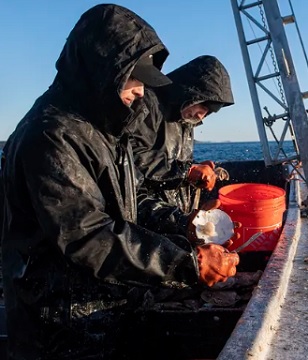
Togue Brawn – The Scallop Evangelist of Maine
Twelve years ago, Brawn started her company, Downeast Dayboat, to introduce dayboat-harvested Maine scallops to the masses. Brawn buys from small boats that often drag the bottoms of inshore crags along the Gulf of Maine and land their bounty a few hours later — as opposed to the bulk of sea scallops eaten in the U.S., which are often sourced from large trip boats that work federally managed offshore waters three or more miles off the Atlantic coast from Massachusetts to Virginia, staying at sea for a week or more. Because of the challenges and expense of quickly shipping out her fresh dayboat scallops, comparatively few people outside of Maine have gotten to sample Brawn’s. “I started this business to show that [our] scallops are truly different,” >click to read< 15:47

On The Ropes – Federal court rules against lobster industry in appeal of whale protection regulations
“Obviously, it’s devastating to the lobster industry,” Stonington Town Manager Kathleen Billings told the Islander. Stonington lands by far the most lobsters in the state. In total, Maine lobstermen added an estimated $724,949,426 worth of lobster landings to the state commercial fishery in 2021. “We have a lot at stake,” Billings continued. “[Lobstering] makes up $60 [million] to $70 million to our economy and to have this recent ruling, and also too with the Seafood Watch list designation, they pretty much put a torch to our industry and burnt it to the ground for us.” >click to read< 08:55
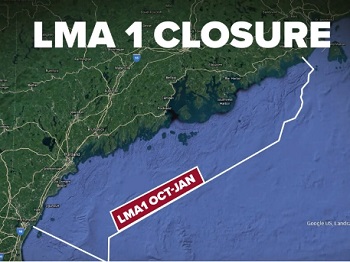
Maine Lobstering Union drops part of lawsuit against NMFS
The Maine Lobstering Union is agreeing to drop part of its lawsuit against the National Marine Fisheries Services, where the federal agency is closing a 960-square-mile section of the Gulf of Maine to lobster fishers. The area, known as LMA 1, is home to hundreds of fishermen like Tyler Turner of Portland. If the closure stands without a state-level court injunction, then Turner said he would lose out on at least half his income. “It’s going to be catastrophic. It’s going to be crippling. I just want to be able to work. I can relieve myself. I don’t need someone telling me where I can’t go,” Turner said. Video, >click to read< 08:14

US Advances Plans for Offshore Wind in Maine
The U.S. Department of the Interior announced next steps to bring offshore wind energy to the Gulf of Maine. “President Biden has set ambitious goals to address the climate crisis, and in response the Interior Department is taking historic steps to develop a robust and sustainable clean energy future,” said Secretary Deb Haaland. “Today’s announcement for the Gulf of Maine represents one of the many milestones that this Administration has achieved to advance offshore wind development, create good-paying jobs, lower consumer energy costs, while collaborating with our government partners, Tribes and key stakeholders to protect biodiversity, advance environmental justice and safeguard other ocean uses.” >click to read< 15:33
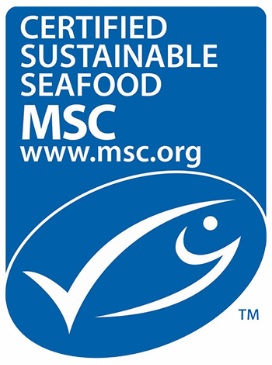
Enviros challenge Maine lobster fishery’s sustainability certification
The Natural Resources Defense Council and other conservation groups are challenging a seafood watchdog’s recertification of the Gulf of Maine lobster fishery as a sustainable resource. The Gulf of Maine’s lobster fishery first received the Maine Stewardship Council’s sustainability certification in 2013, and since then participating lobster businesses have been able to display the council’s blue fish checkmark recognized by eco-minded consumers. Virginia Olsen of the Maine Lobstering Union calls the resource defense council’s effort unfortunate. “Maine fishermen have stepped up to implement whale rules time and time again,”>click to read< 15:21

Maine lobster industry may receive nearly $14 million in federal aid
U.S. Reps. Jared Golden and Chellie Pingree, both Democrats from Maine, helped secure the funding and pledged to keep advocating for the fishery. In a statement, Golden called the regulations misguided, indefensible and economically damaging. “NOAA has been unable to prove that these regulations will work, but lobstermen are still being forced to pick up the tab,” he said. “It’s just wrong.” Virginia Olsen, director of the Maine Lobstering Union, said the money will help keep fishermen in business as they “work to right the wrongs” of the new regulations. Patrice McCarron, executive director of the Maine Lobstermen’s Association, agreed. >click to read< 19:58
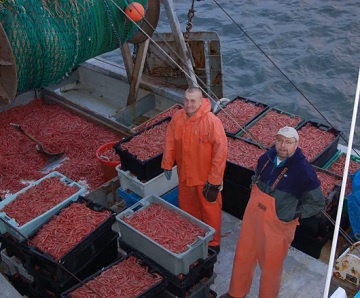
How warming ocean temperatures wiped out Maine’s shrimp industry
Since 2014 fishing for northern shrimp has been banned in the United States. The stock in our area has decreased to the point where they are not reproducing. This is not due to overfishing; it is directly due to the temperature of the water. They have simply moved north to colder Canadian waters. Back in 2007, when there was a robust northern shrimp fishery in the Gulf of Maine, scientists were looking for net modifications that would catch shrimp but not have any bycatch of finfish. Since shrimp fisheries throughout the world have some of the highest bycatch of any fishery, this was a priority worldwide. At that time the Northeast Consortium at the University of New Hampshire helped fund research by Dr. Pingguo. He and David Goethel developed a trawl net, named “The Topless Trawl,” that drastically reduced bycatch in the northern shrimp fishery. >click to read< 10:21

Scientists see long-term hope for Maine’s lobster fishery despite warming waters
Dire predictions about the effects of global warming on Maine’s lobster population may be exaggerated and underestimate the potential that conservation measures have to preserve the fishery into the future. The UMaine scientists are now projecting that temperatures in Gulf of Maine will likely remain within lobsters’ comfort zone because of the gulf’s unique oceanographic features, though changing ocean currents are harder to predict. The researchers cautioned that the dynamics of global warming are complex and make it difficult to project far into the future with certainty. >click to read< 16:21
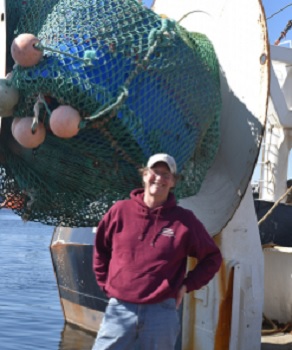
New England’s founding fish, may be returning to local waters
Atlantic cod, once a mainstay of the region’s economy, is being fished at historically low levels, but a research scientist whose past findings opened up a tightly regulated scallop fishery says cod may be staging a comeback. Before he heads out to sea, commercial fisherman Raymond Lees stops by Reidar’s Trawl Gear & Marine Supply in New Bedford to buy custom-designed fishing nets. The shape of the net, the width of its mouth and the size of its holes all help him target certain species of fish and, perhaps more importantly, avoid others. “I’ve spent so long running away from codfish that I’ve gotten better at running away from codfish,” Lees said during a recent run to Reidar’s. “I have specialized gear and I’m good at what I do.” “We went from a huge fishing business, as far as the groundfishing fleet’s concerned, of 300 boats down to 20 boats,” Bendiksen said. “It’s pretty much a 90 percent loss of what the fleet was.” >click to read< 08:10
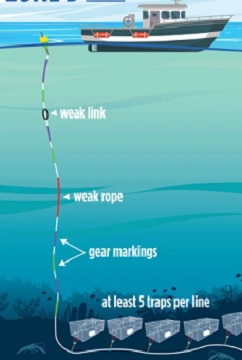
Big Story: Lobstermen fear disaster as new gear regulations take effect
Doug McLennan isn’t worried about the state of the fishery. What worries McLennan and thousands of other Maine lobstermen is the latest round of federal regulations designed to protect the endangered North Atlantic right whale, and additional measures being planned for the next decade. The newest regulations took effect Sunday, though their enforcement has been delayed until supply chain issues for some of the required gear are resolved. This is just the latest in gear regulation change required by the Atlantic Large Whale Take Reduction Plan,,, Many lobstermen have raised concerns about safety and the potential for gear failure and loss of expensive traps under the new rules, and they worry about what is coming next. >click to read< 09:16
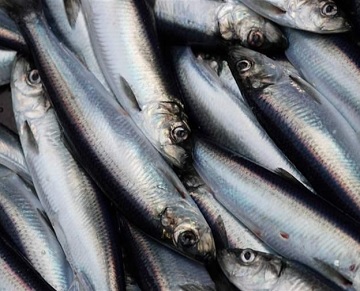
Midwater trawler critics intend to appeal court decision
Fishermen in the Gulf of Maine are seeking to appeal a federal judge’s reversal of an exclusion zone that keeps herring trawlers 12 miles offshore. The March 4 ruling by US District Court Judge Leo Sorokin in Boston could reopen some Northeast waters to midwater herring trawlers, reversing the 2019 rule change that excluded them from a wide swath. from the Atlantic coast from Long Island to the Canadian border. In his opinion, Judge Sorokin wrote that the concept of “localized depletion” put forward by opponents of midwater trawlers has not been adequately defined by NMFS, leading him to rule that the exclusion zone decision violated Magnuson-Steven National Standard 4. Fishing Management and Conservation Law. >click to read< 14:28
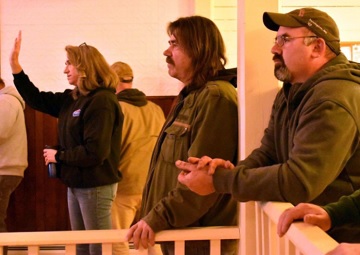
DMR brings news of declining young lobsters, resiliency measures to local lobstermen
“We’re not talking about whales.” Those were among the first words from Kathleen Reardon, lead biologist for the Maine DMR, to lobstermen at Stonington Town Hall on March 31. Both ongoing lawsuits and legislation aimed at protecting right whales from entanglement with lobster trap lines have delayed lobster stock assessments and analysis. But now lobster councils are meeting across the state to hear about a draft addendum to the Atlantic States Marine Fisheries Commission lobster management plan for the Gulf of Maine and Georges Bank, where 90 percent of U.S. landings are. The ASMFC manages near-shore fisheries for 15 states, including Maine. The draft addendum would affect Lobster Management Areas 1 and 3 and off Cape Cod as well as Maine, New Hampshire and Massachusetts. >click to read< 16:37

Are the whales leaving with the food? Gulf of Maine research raises questions about new lobstering rules
As the Gulf of Maine’s waters warm, recent studies show the main food source of the endangered North Atlantic right whale is moving north, out of Maine waters. And the whales appear to be following them. Such findings haven’t escaped the notice of the Maine lobster industry, which has been referencing them in its legal arguments as to why impending new federal restrictions on lobstering gear won’t help save the whales. Oceanographer Jeffrey Runge, of the University of Maine and the Gulf of Maine Research Institute, said the lipid-rich copepods have been abundant in the Gulf of Maine since Henry Bigelow did his first oceanographic surveys in the early 20th century, but that abundance has dropped by about 70 percent in the past 20 years. >click to read< 11:57
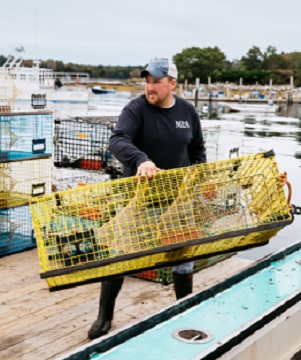
A Complicated Battle in the Gulf of Maine
It was two hours before dawn in the village of Friendship, but for a Maine lobster crew, it was already getting late. Captain Dustin Delano, his sternman, Chris, and his bait guy, Tim, moved in coordinated loops around the deck of the F/V Knotty Lady, stacking traps, thawing redfish heads and coiling lines to the gentle bass notes of engines rumbling below decks. In its own way, it had the feel of a chamber orchestra tuning up. Last cigarettes were lit, smoked and flicked away. And with that, we were off to the grounds. Soon, though, if things go according to a ruling by a federal court in Portland, that schedule would be thrown into chaos. In accordance with a recent modification to a federal whale plan, a 950-square-mile area of prime lobster fishing grounds was set to close in an effort to protect endangered North Atlantic right whales. Enter Green Energy – Where and how Maine would site farms to exploit this potential is an open question. >click to read< 11:09
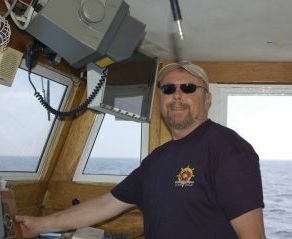
Who is the real Saudi Arabia of Wind? By David Goethel
I read the February 16th article by Teddy Rosenbluth, “New Hampshire is blowing its chance at offshore wind”, from the Concord Monitor, with interest and wished to offer some comment, both to the media covering New Hampshire, and the readers. By way of introduction, I am a research biologist and 54-year fisherman, both recreational and commercial, in the Gulf of Maine. First, I want to publicly thank both Governor Sununu and his energy spokesman, Assistant Commissioner of NH Dept. of Environmental Services, Mark Sanborn for taking a wise stand on collecting biological, ecological, economic and social implications of offshore wind development before leasing vast tracts of the Gulf of Maine. This stand is in marked contrast to other coastal governors and the Biden Administration, as well as European states, which have adopted a stance of build first and study later. >click to read< 20:18
Repeating the agenda “talking points”: Advocates say NH is blowing its chance at offshore wind – The Gulf of Maine, an area with strong and reliably blowing winds, is what Sen. David Watters called the “Saudi Arabia of wind.” >click to read<

Repeating the agenda “talking points”: Advocates say NH is blowing its chance at offshore wind
New Hampshire is uniquely positioned to benefit from one of the most promising areas for offshore wind development. Environmental advocates fear the state is blowing its advantage. The Gulf of Maine, an area with strong and reliably blowing winds, is what Sen. David Watters called the “Saudi Arabia of wind.” The area presents an opportunity to create thousands of jobs and move away from fossil fuels, supporters said at a press conference Wednesday morning organized by New England for Offshore Wind. “Offshore wind really is the biggest lever we have to move climate change action,” said Rob Werner, state director for the League of Conservation Voters. >click to read< 11:14
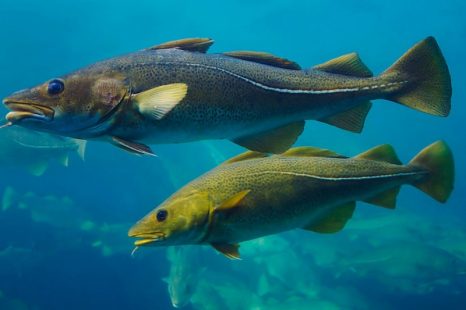
Fishermen not feeling the effects of ‘marked decrease’ in Atlantic cod population
What started as a research presentation on rising ocean temperatures and decreasing cod supply by NOAA quickly turned into a revealing conversation about how scientists and their data often do not reflect fishermen’s experiences. Findings by a working group of researchers indicated that the lifecycle of the species is being influenced by the environment, specifically rising ocean temperatures, which have changed the fish’s spawning behavior and their predator-prey relationships. Fishermen did question is whether these facts are having the same implications that the researchers believe. Al Cottone, a Gloucester fisherman, says he feels cod are in different areas, and that he has noticed a change in the tides, too. >click to read< 10:56

Maine considers fund for lobster fishermen/gillnetters hurt by whale rules
Maine is by the far the most significant lobster fishing state in the country, and members of the state’s industry have warned they will suffer because of the new rules. A proposal from Democratic Rep. Holly Stover of Boothbay would create the fund, which would provide grants for lobster fishermen as well as some fishermen who harvest other species with gillnets. “The lobster industry is an economic driver of our local economy, hands down,” Stover said. “This is not a fisheries disaster, this is an economic disaster.” >click to read< 11:18
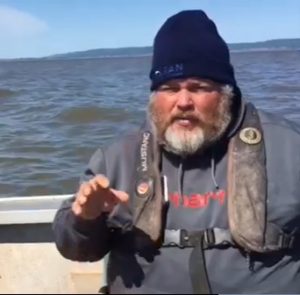
Caretakers of their waterways: Two Nova Scotians granted visionary awards
Dec. 9 Darren and Erica Porter were freezing their keesters off in their aluminum dory as academics and fisheries managers with the Gulf of Maine Council on the Marine Environment bestowed a Visionary Award on him via Zoom. The other Nova Scotian recipient of the award was further up the Bay of Fundy. Like Porter, through his years working with the Clean Annapolis River Project, Levi Cliché has learned as much about working with people and institutions as he has about the ecosystem he cares for. >click to read< 10:38 More posts of Darren Porter and real activism to stop tidal turbines and fighting for the safe passage of fish, >click to read them all<.
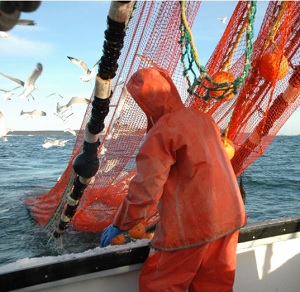
Gulf of Maine: Shrimp fishery to remain closed for three more years
For the eighth straight year, Maine’s commercial shrimp fishery will remain closed to harvesters. The Atlantic State Marine Fisheries Commission’s Northern Shrimp Section voted last week to keep the fishery shut down for at least three more years citing an assessment update that indicated the stock in the Gulf of Maine remains depleted. A commercial fishing moratorium has been in place since the 2014 season,,, >click to read< 08:30
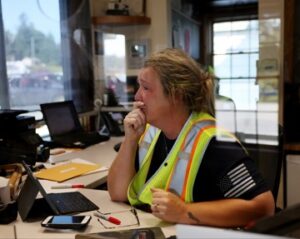
The ‘Lobster Trap’, Part II – Protests and Prayers
When she heard the news, in the middle of her shift selling tickets at the ferry terminal, Cathy Watt broke down in tears. The U.S. government had just ordered the unprecedented closure of a 1,000 square-mile swath of ocean off Maine’s coast to traditional lobster fishing for four months a year, starting in October. It was a crushing consequence of climate change: Warming oceans have hastened an endangered whale’s journey to the brink of extinction, and now Maine fishermen would pay the price. photos, video, part II of a series, >click to read< 09:49 ‘The Lobster Trap’ >click to read<

Supreme Court denies lobstermen’s bid to halt Gulf of Maine fishing restrictions
The Supreme Court on Friday denied a request by lobster fishers to halt environmental protections that restrict fishing in a large swath of the Gulf of Maine. The application, filed earlier this week by a lobster fishers’ union and two lobster fishing companies, was rejected without comment by Justice Stephen Breyer, who handles emergency matters arising from the region. >click to read< 13:13

Lobstermen ask Supreme Court to halt restrictions meant to protect whales
The protections in question restrict the use of lobster traps in nearly 1,000 square miles in the Gulf of Maine between October and January. They are intended to protect the North Atlantic right whale,,, In the emergency application, the union and fishing companies said the restrictions would curtail fishing by more than 100 of the state’s “largest and most productive” boats, many of which only fish in the restricted area. “These fishermen and their communities have no other means to make a living except by fishing in these waters during this specific time of year, and even the loss of one season will see their vessels repossessed and their gear obsolete due to changing regulations with no funds to update them,” the application states. >click to read< 13:16 Lobstering union petitions U.S. Supreme Court to overturn Gulf of Maine closure – The Maine Lobstering Union has filed a petition asking to plead its case before the U.S. Supreme Court in an effort to reopen the area, which is slated to be closed through January – and every subsequent October through January – in an effort to protect the critically endangered North Atlantic right whale. >click to read< 17:20
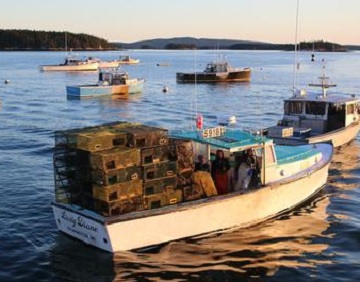
NOAA orders lobster fishing gear out of offshore zone
After a month-long court battle, an appeals court upheld the closure on November 16 U.S. Rep. Jared Golden, a Maine Democrat, said that the annual closure from October 1 to January 31 sets a dangerous precedent. It “will give federal agencies a green light to pursue regulatory actions that could devastate communities without any regard for whether or not those efforts are grounded in facts and data,” he said in a statement. “It’s regulations like this one that make people distrust government. Instead of looking out for hardworking people, our government cares more about appeasing deep-pocketed environmental groups that can litigate our lobster fishery out of existence,” Golden said. >click to read< 09:19

Judge rejects efforts by feds, enviro’s to impose immediate restrictions on lobstering
Last month, Justice Lance Walker sided with the Maine Lobstering Union and granted a temporary injunction to stop a new federal closure of a roughly 960-square mile area off the Maine coast. The federal agencies appealed that decision and asked for an emergency “stay” of the order, contending the closure is essential now to protect endangered right whales. On Friday, Justice Walker denied that request, meaning the area remains open to fishing. >click to read< 16:10

Feds, con groups file appeal to reinstate seasonal lobstering ban
In their appeal, the federal government and the conservation groups, the Center for Biological Diversity, the Conservation Law Foundation and the Defenders of Wildlife, argue that not only did the National Marine Fisheries Service use the best available science, but also that the lobstering groups did not present any actual evidence of the “certain economic harms” the judge referenced. Also in the appeal, the groups claim that the plaintiffs’ criticism of the availability and quality of data to support the restrictions is misplaced. The fisheries service admitted that more data would be beneficial to refine the agency’s understanding of right whale distribution, but it argued that the data already available is sufficient. >click to read< 08:02
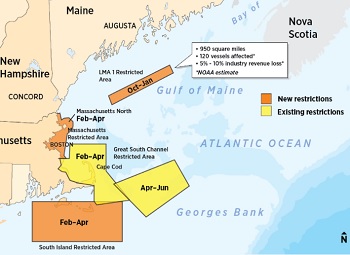
Gulf of Maine: Whale scientists fire back – Marine biologists disagree with a judge’s decision
Lobster industry professionals, elected officials and now a federal judge have expressed doubts as to whether the National Marine Fisheries Service used the best available science in imposing the closure, and whether the whales even frequent the area. They all argue that the statistical modeling used by federal regulators leaves much to be desired. Sean Todd, a marine biologist and director of Allied Whale, a marine mammal research group located at the College of the Atlantic in Bar Harbor, disagrees with both the decision to block the closure and the claim that there are insufficient data to justify it. >click to read< 09:27

































